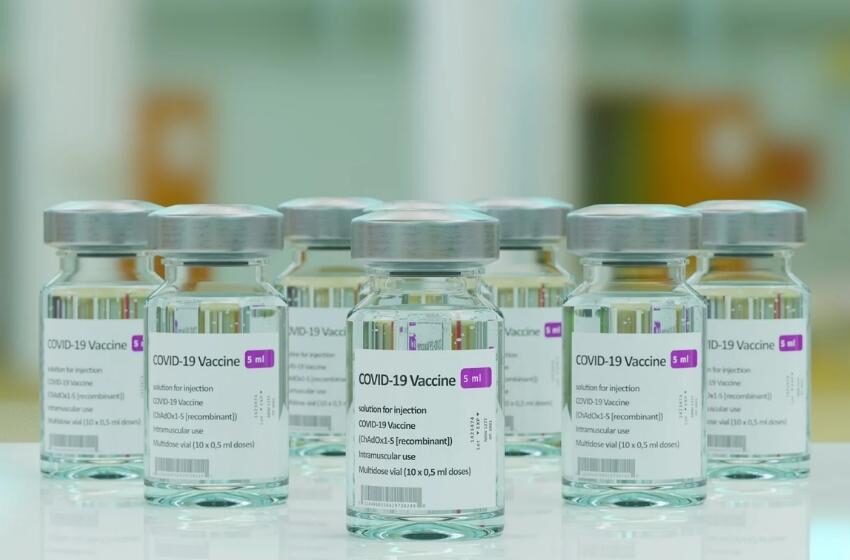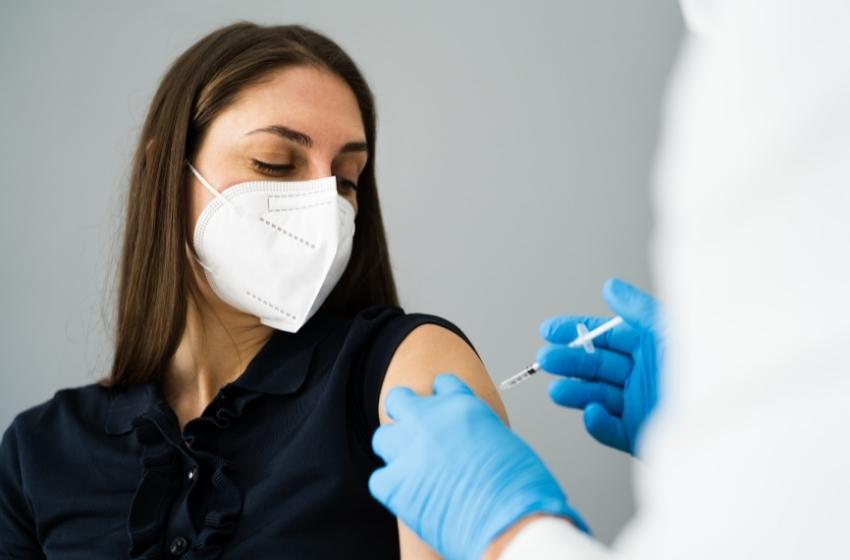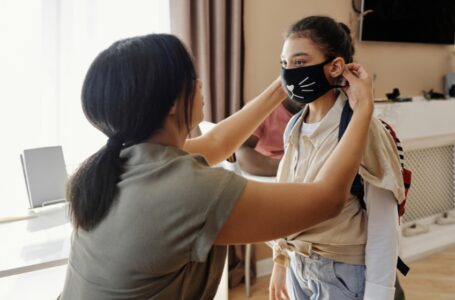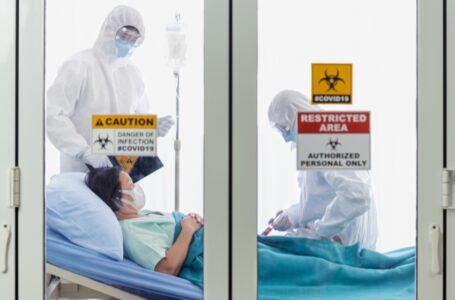Everything you need to know about Vaxzevria (AstraZeneca)

Vaxzevria (AstraZeneca) is one of the vaccines that the TGA has approved for use in Australia; clinics and hospitals have been using it as a primary course and booster dose for people aged 18 years and above. More specifically, TGA gave provisional approval as a primary dose on 15 February 2021. On 8 February 2022, it provisionally approved it to be used as a booster.
However, it is imperative to understand that Pfizer, Moderna, or Novavax COVID-19 vaccines are favourable for 60 aged and above people. The main reason is that AstraZeneca poses a higher risk and causes a rare side effect called Thrombosis with thrombocytopenia (TTS). Besides, in most cases, people aged 60 and above who have taken AstraZeneca encounter the severity of the above-mentioned side effects.
Also, it is noteworthy that there is no brand preference for people aged 60 and above. But older adults in this age group are at a higher risk of becoming severely ill due to Covid-19, indicating that vaccination benefits outweigh TTS’s small risk. Nonetheless, older adults under 60 can use AstraZeneca after considering the risks and benefits.
What dose schedule should you maintain?
Primary Course
According to the TGA’s guidelines, most people need to take AstraZeneca primary course in 2 doses, 4 to 12 weeks apart from each other. Then, they must take the second dose 12 weeks after their first dose; the time can be less in specific conditions. Also, it would help if you remembered that one may not be entirely protected against Covid-19 until 7 to 14 days after their second dose.
On the other hand, severely immunocompromised people must get a third vaccine dose which would be a part of their primary course. Although AstraZeneca is not the preferred Vaccine for the third dose, medical professionals can use it in adults if they find contraindications to mRNA and Novavax Covid-19 vaccines. Finally, you can take the third primary dose eight weeks after the second dose of the primary course.
You can find the required information about third doses if you are severely immunocompromised.
AstraZeneca as a booster dose
Medical professionals administer AstraZeneca as a booster dose for 18 aged and above people; you can take the booster dose in three months or more after the primary course. In contrast, doctors recommend some people have a second booster dose(fourth dose) three months after the first booster shot.
Besides, regardless of the vaccines used for the primary course, mRNA vaccines (Pfizer or Moderna) are favourable options for booster doses. On the other hand, AstraZeneca might not be the preferred option, but doctors can use it as a booster dose for:
- Those people who have contraindications to mRNA vaccines; this group of people include those who encountered serious heath-related incidents due to mRNA vaccines. For example, instances of anaphylaxis or myocarditis attributed to an mRNA vaccine.
- People who prefer alternative vaccines other than mRNA vaccines.
What is in the AstraZeneca Vaccine?
The AstraZeneca vaccine includes a harmless, weakened animal virus called viral vector that contains the coronavirus spike protein’s genetic code. Upon entering the human body, it tells the human cells to make spike protein copies. As a result, the human body’s immune cells recognise the spike protein as a threat and start to build an immune response against it.
However, it is essential to point out that the AstraZeneca vaccine does not contain any live virus and doesn’t cause Covid-19. For further details, visit the Vaxzevria Consumer Medicine Information document.
How does the Vaccine benefit us?
Researchers and medical experts have noted that AstraZeneca outweighs side effects risks for people aged 60 and above; they said the same for the young people in outbreak situations.
Moreover, a substantial clinical trial has highlighted that AstraZeneca effectively prevents Covid-19 in people aged 18 and above. Besides, people who have had AstraZeneca’s two doses were 70 per cent less likely to become sick from Covid-19 compared to those who didn’t get the Vaccine. Also, the Vaccine proved effective for people with pre-existing medical conditions.
What are some of the common side effects of AstraZeneca?
Millions of people have been administered AstraZeneca, which provided appropriate protection against Covid-19. However, people have reported temporary mild side effects after getting the AstraZeneca vaccine which are as follows:
- injection site pain or tenderness
- tiredness
- headache
- muscle pain
- fever and chills.
Some uncommon side effects or reaction of the Vaccine includes:
- enlarged lymph nodes
- pain in the arm or leg
- dizziness
- decreased appetite
- stomach pain.
Besides, most side effects are mild and go away by themselves within one or two days; they are more common following AstraZeneca’s first dose.
What are the rare side effects that occur after getting AstraZeneca Vaccine?
Severe allergic reaction (anaphylaxis) is a rare side effect after getting the AstraZeneca vaccine. The allergic reaction causes a specific blood clot called Thrombosis with thrombocytopenia syndrome (TTS). And some people may also encounter myocarditis and pericarditis.
What is Thrombosis with thrombocytopenia syndrome (TTS)?
When someone has TTS, they have blood clots(Thrombosis) along with low levels of blood platelets, known as thrombocytopenia. Also, TTS occurs in different body parts like the brain and abdomen(belly), and low blood platelet levels cause bleedings. Besides, you must remember the following:
- TTS symptoms most commonly develop between four to forty-two days after vaccination.
- People might encounter the symptoms mostly following the first dose.
- This occurs more in younger women.
Consult the doctor immediately if you develop the following symptoms:
- weakness of the face or limbs
- shortness of breath or chest pain
- severe abdominal (belly) pain
- Leg swelling
- Unexplained pin-prick rash or bruising away from the injection site
- severe or persistent headache that does not go away after taking pain relief medication
- blurred vision
- confusion or seizure
However, you need to worry because TTS is treatable, and most people recover from it; you can read more about it in detail in the Information on the COVID-19 AstraZeneca vaccine. At the same time, you can read elaborate details on Melbourne Vaccine Education Centre’s page on TTS. Nevertheless, the chances of developing TTS in Australia after getting the Vaccine’s first dose is 20 in a million.
How does the TTS occur?
ATAGI has cleared the confusion around the injection technique’s connection with TTS; it has pointed out that injection techniques are not responsible for any adverse events. For instance,
TTS most cases occur after the first dose and if injecting into blood vessels was a significant factor, it would have happened after both doses.
On the other hand, direct injection into a blood vessel is unlikely in the recommended injection sites. Finally, TTS occurs a few days or weeks after vaccination; if it resulted from injecting into the bloodstream in the place of a muscle, it would have happened much earlier.
Myocarditis and Pericarditis
Inflammation of the heart is referred to as myocarditis, and inflammation of the membrane around the heart is pericarditis. Besides, these rare effects that affect heart health occur:
- Within 1 to 5 days of vaccination
- predominantly after the second dose
- more often in men under 40 years
Unfortunately, these side effects can occur to people of any gender at any age and after any dose. Therefore, medical experts suggest contacting your doctor if you face any symptoms after getting the Moderna vaccine.
- Irregular, skipped heartbeats or ‘fluttering.’
- Fainting
- shortness of breath
- pain when breathing
- chest pain
- pressure or discomfort in the chest
- Irregular, skipped heartbeats or ‘fluttering.’
Thankfully, doctors have pointed out that there are low chances of developing myocarditis and pericarditis. Moreover, the risk of both heart diseases is lower after getting AstraZeneca than mRNA vaccines (Pfizer or Moderna).
You can read more about it on Melbourne Vaccine Education Centre’s page on myocarditis and pericarditis.
What are some of the essential precautions?
People with specific pre-existing medical conditions need to follow extra precautions like staying under observation for 30 minutes after getting their Vaccine. Also, they need to consult an allergy specialist to ensure the required follow-up if they encounter any serious reaction. Moreover, you need to alert your immunisation provider if:
- In case you had an allergic reaction to a previous dose or AstraZeneca Covid Vaccine component.
- Anaphylaxis to other vaccines or medications – your provider can check that there are no standard components with the AstraZeneca vaccine.
- Confirmed mastocytosis with recurrent anaphylaxis that requires treatment.
Furthermore, you must inform your immunisation provider if you have a bleeding disorder or take blood-thinning medication (anticoagulant). They can decide whether you should have an injection in your muscle and help you with the appropriate time for getting the Vaccine.
People with the following diseases can get AstraZeneca but need to consult with their GP, cardiologist, and immunisation provider regarding the vaccination’s best timing.
- Recent (i.e. within the past three months) myocarditis or pericarditis
- Acute rheumatic fever or acute rheumatic heart disease (with active myocardial inflammation)
- Acute decompensated heart failure

On the other hand, people who develop myocarditis and pericarditis after taking the Covid-19 Vaccine must avoid getting further doses and consult the doctor. Also, you can get AstraZeneca if:
- If you have a weakened immune system (immunocompromised)
- If you have a history of blood clots such as deep vein thrombosis (DVT) or pulmonary embolism (PE).
Who should avoid AstraZeneca?
ATAGI has advised people to avoid AstraZeneca who face contraindications with the Vaccine and include the following:
- People must avoid AstraZeneca, who had anaphylaxis after a previous dose.
- anaphylaxis to any component of the Vaccine, including polysorbate 80
- history of capillary leak syndrome
- thrombosis with thrombocytopenia occurring after a previous dose
- Any other serious adverse event that, following review by an experienced immunisation provider or medical specialist, was attributed to a previous dose of the AstraZeneca vaccine.
The health advisory board suggested people with the following conditions not get AstraZeneca:
- cerebral venous sinus thrombosis (CVST)
- heparin-induced thrombocytopenia (HIT)
- idiopathic splanchnic (mesenteric, portal and splenic) venous Thrombosis
- anti-phospholipid syndrome with Thrombosis.
Besides, you must consult a haemotologist if you develop immune thrombocytopenia (ITP) within 42 days after receiving AstraZeneca. Likewise, you must ask them whether it is safe to go with the second dose of the same or an alternative vaccine.
What should you do after vaccination?
It would help if you knew the steps to follow after getting your vaccination; read what to do after you are vaccinated and how to get your vaccination certificate. Similarly, you need to know about the essential steps to staying safe and the steps to manage your side effects.
However, suppose you have been vaccinated with Novavax. In that case, you must still conduct a Covid-19 test and check you have symptoms that meet testing criteria according to your local health authority (such as fever, cough or sore throat).







